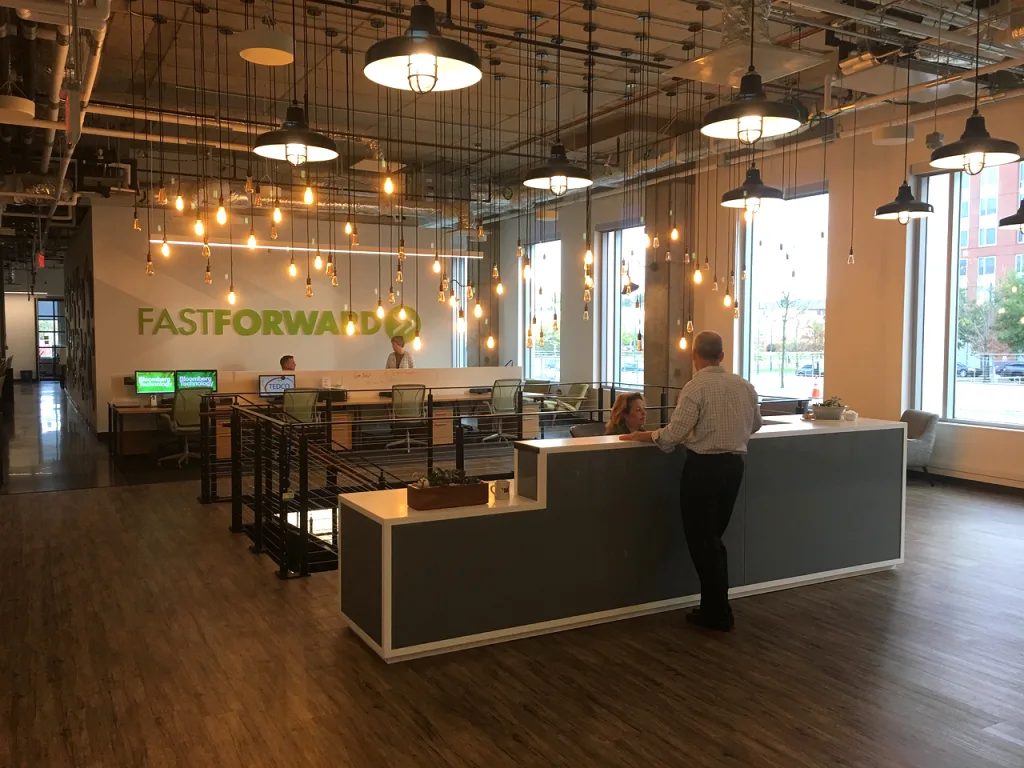Johns Hopkins Technology Ventures proves you don’t need to move to a tech hub. Just build your own
Attracting early-stage investment is never simple, but aspiring founders in Silicon Valley and New York and Singapore take for granted that even if individual deals can be hard to secure, there sure is a lot of money flowing. For those living beyond the easy reach of a high-tech hotbed and prefer it that way, opportunities can be much harder to come by. Which makes the success of Johns Hopkins Technology Ventures, the commercialization and technology transfer arm of the Baltimore university—the first-ever research university in the United States—all the more remarkable. To date, JHTV—founded 10 years ago with a mission to help innovators from across its academic community translate their intellectual property into real-world applications—has helped launch more than 150 startups. The companies in its portfolio have raised more than $4 billion in venture funding. It’s little surprise that while JHTV’s mandate extends across the entire Johns Hopkins community, the office focused much of its earliest efforts in collaboration with scientists at the School of Medicine, 17 of whom (past and present) have won the Nobel Prize in Physiology or Medicine—nor that the resulting projects yielded some notable wins. In recent years, big industry players acquired JHTV-backed biotech companies Thrive Earlier Detection, Haystack Oncology, and Personal Genome Diagnostics—and those are just the cancer-testing startups. Interior of the JHTV innovation hub in East Baltimore [Photo: Johns Hopkins Technology Ventures] To ensure the office is assessing as many great ideas for commercial potential as possible, no matter how niche, JHTV provides an online portal through which all Johns Hopkins faculty report their latest inventions. The bar, of course, is high. Even once the office alights on a potential opportunity, the faculty member who came up with it must sometimes be convinced. “We do a lot of what I call entrepreneurial evangelism,” says Myra Norton, JHTV’s head of startup acceleration. “We present in faculty meetings. We present to students as part of their onboarding process. Wherever, whoever will let us come and talk.” Part of Norton’s pitch is the tailored approach of the accelerator program Norton leads, called FastForward, which adapts to the individual needs and goals of its collaborators, all of whom are juggling entrepreneurship with their primary duties as teachers and scholars. “Think of it as kind of a concierge service to connect folks to the right people,” Norton says. “Our work here is to try to meet folks where they are with a set of offerings that enable them to grow their ventures while still meeting the expectations of their lives.” For most founders-to-be, the conversation begins—where else?—with funding, and JHTV can help with everything from applying for pre-seed grants and access to angel investors to hiring the right talent to grow. Startups in need of a place to work can grab some of the 23,000 square feet of JHTV-owned office space, including 15,000 square feet of wet lab. In 2018, JHTV expanded its sights beyond campus and toward local aspiring entrepreneurs in the Baltimore area with the Social Innovation Lab, a pre-seed accelerator. Past participants included a startup building technology to care for wigs and an entrepreneur working to provide doula services to at-risk populations. For the 2023-24 cohort, Norton says that more than 100 projects applied for one of just 10 slots. It is fitting that as JHTV continues to grow alongside Baltimore’s burgeoning startup scene, the office becomes one of its biggest champions. This story is part of Fast Company and Inc.’s Ignition Schools 2024 awards, the 50 colleges and universities making an outsize impact on business and society through entrepreneurship and innovation. Read about the methodology behind our selection process.

Attracting early-stage investment is never simple, but aspiring founders in Silicon Valley and New York and Singapore take for granted that even if individual deals can be hard to secure, there sure is a lot of money flowing. For those living beyond the easy reach of a high-tech hotbed and prefer it that way, opportunities can be much harder to come by.
Which makes the success of Johns Hopkins Technology Ventures, the commercialization and technology transfer arm of the Baltimore university—the first-ever research university in the United States—all the more remarkable. To date, JHTV—founded 10 years ago with a mission to help innovators from across its academic community translate their intellectual property into real-world applications—has helped launch more than 150 startups. The companies in its portfolio have raised more than $4 billion in venture funding.
It’s little surprise that while JHTV’s mandate extends across the entire Johns Hopkins community, the office focused much of its earliest efforts in collaboration with scientists at the School of Medicine, 17 of whom (past and present) have won the Nobel Prize in Physiology or Medicine—nor that the resulting projects yielded some notable wins. In recent years, big industry players acquired JHTV-backed biotech companies Thrive Earlier Detection, Haystack Oncology, and Personal Genome Diagnostics—and those are just the cancer-testing startups.

To ensure the office is assessing as many great ideas for commercial potential as possible, no matter how niche, JHTV provides an online portal through which all Johns Hopkins faculty report their latest inventions. The bar, of course, is high. Even once the office alights on a potential opportunity, the faculty member who came up with it must sometimes be convinced. “We do a lot of what I call entrepreneurial evangelism,” says Myra Norton, JHTV’s head of startup acceleration. “We present in faculty meetings. We present to students as part of their onboarding process. Wherever, whoever will let us come and talk.”
Part of Norton’s pitch is the tailored approach of the accelerator program Norton leads, called FastForward, which adapts to the individual needs and goals of its collaborators, all of whom are juggling entrepreneurship with their primary duties as teachers and scholars. “Think of it as kind of a concierge service to connect folks to the right people,” Norton says. “Our work here is to try to meet folks where they are with a set of offerings that enable them to grow their ventures while still meeting the expectations of their lives.”
For most founders-to-be, the conversation begins—where else?—with funding, and JHTV can help with everything from applying for pre-seed grants and access to angel investors to hiring the right talent to grow. Startups in need of a place to work can grab some of the 23,000 square feet of JHTV-owned office space, including 15,000 square feet of wet lab.
In 2018, JHTV expanded its sights beyond campus and toward local aspiring entrepreneurs in the Baltimore area with the Social Innovation Lab, a pre-seed accelerator. Past participants included a startup building technology to care for wigs and an entrepreneur working to provide doula services to at-risk populations. For the 2023-24 cohort, Norton says that more than 100 projects applied for one of just 10 slots.
It is fitting that as JHTV continues to grow alongside Baltimore’s burgeoning startup scene, the office becomes one of its biggest champions.
This story is part of Fast Company and Inc.’s Ignition Schools 2024 awards, the 50 colleges and universities making an outsize impact on business and society through entrepreneurship and innovation. Read about the methodology behind our selection process.






















